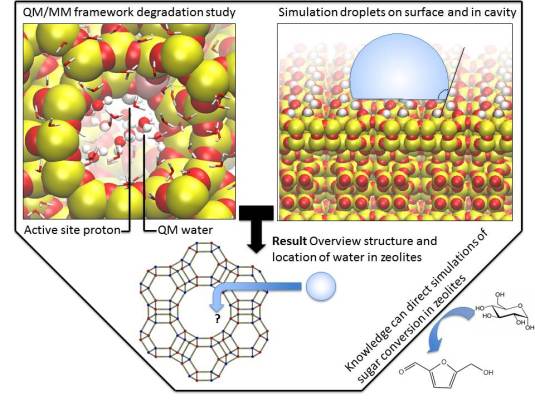Acidic Water in Zeolite Pores: Multi-scale Modelling of Water-Active Site Interactions


Sustainably sourced biomass may have wide applicability as renewable resource for the production of transportation fuels as well as many consumer products (plastics, car supplies, clothing). What is more, traditional – zeolite based – catalysis has been successfully explored for performing such sustainable manufacturing processes. Nonetheless, new catalytic reactions introduce new difficulties. Fuel production (via high temperature cracking of the oxygen-rich biomass molecules) involves water formation, while converting biomass poly-alcohols into chemicals often requires an aqueous environment. In both cases the presence of water in the traditional zeolite-based catalysts causes a reduction of activity over time.
Here, we will combine quantum mechanical and classical simulations to study water in zeolites, with the goal to develop guidelines to design more stable zeolite catalysts for biomass conversion. The project can be divided into two branches, involving two different simulation scales. 1) We will investigate the behavior of an active site proton in the presence of water, and its reactivity towards the cavity wall. 2) We will explore the attachment of water droplets on zeolite-representative surfaces with different shapes (i.e., flat, curved and confined), and makeup (i.e., Si/Al ratio). This thorough study will predict structure and location of zeolite water, and can provide a framework for further studies on the reactivity of the biomass compounds themselves.
Project leader: Prof. Bert Weckhuysen
















